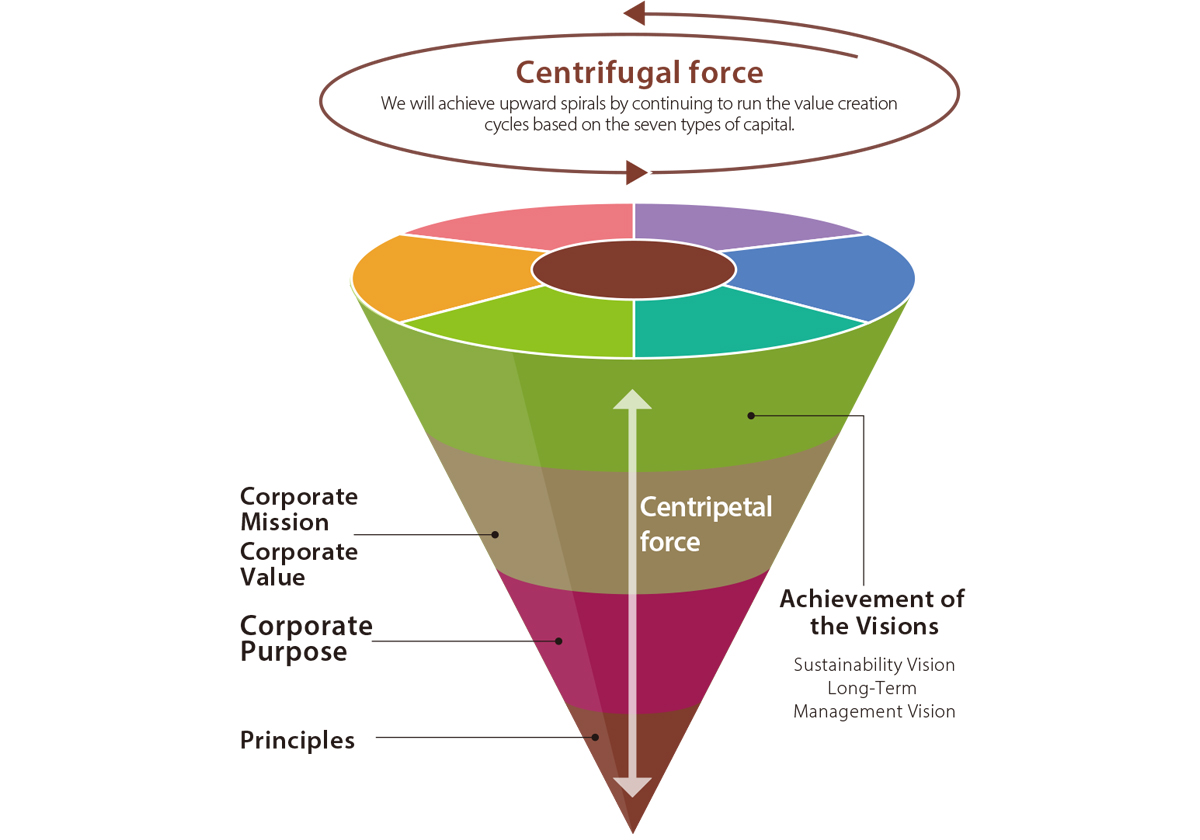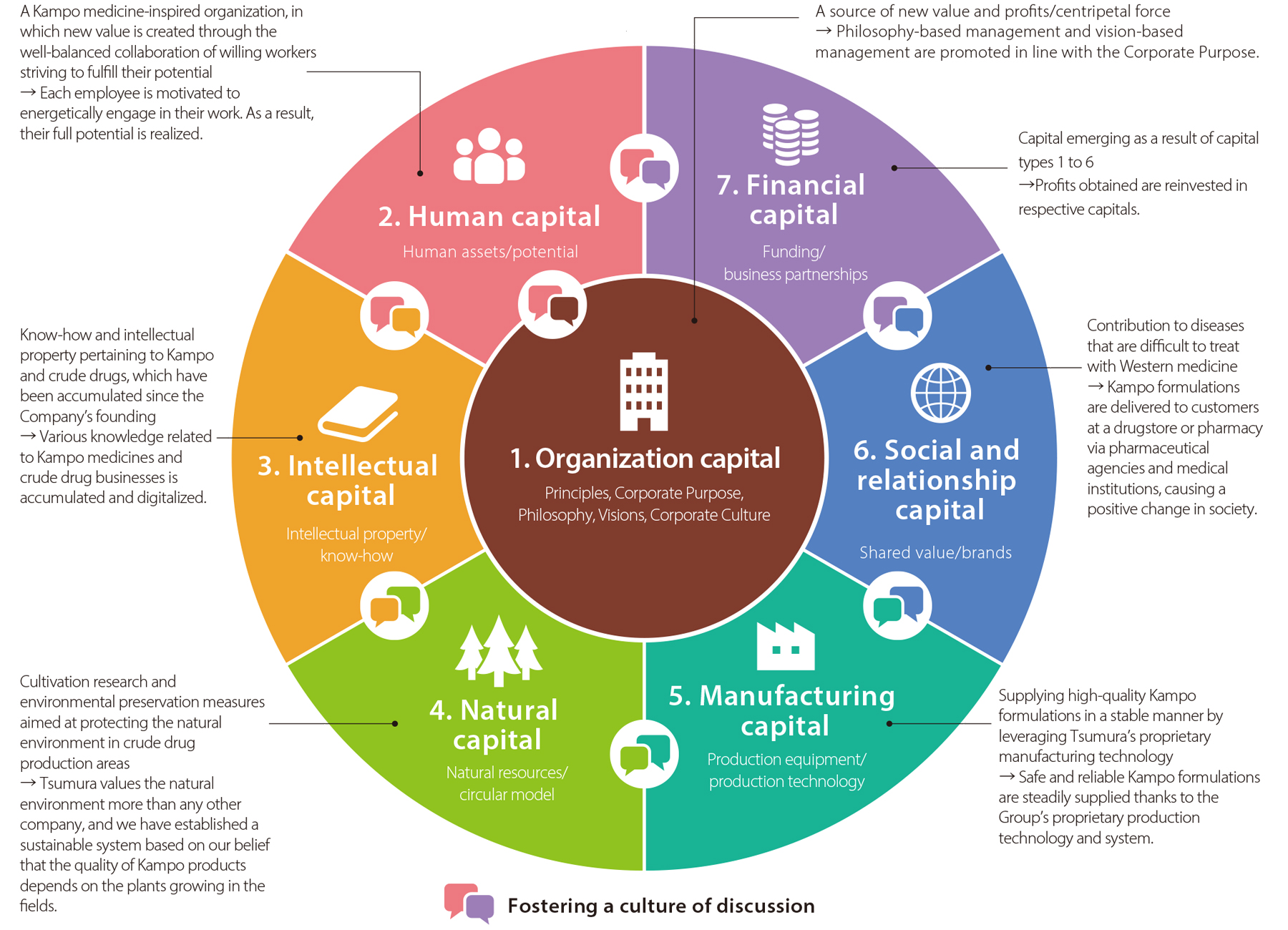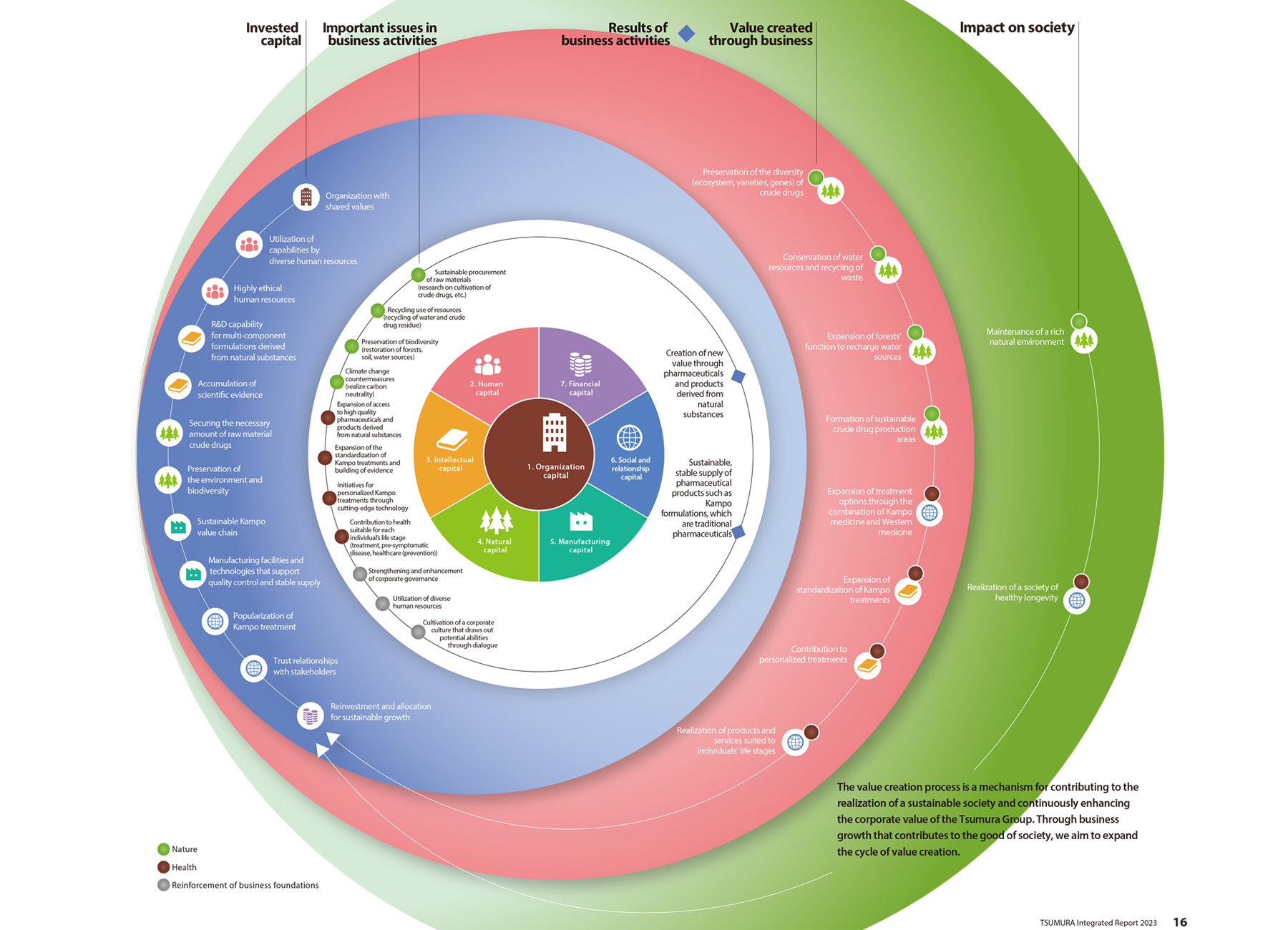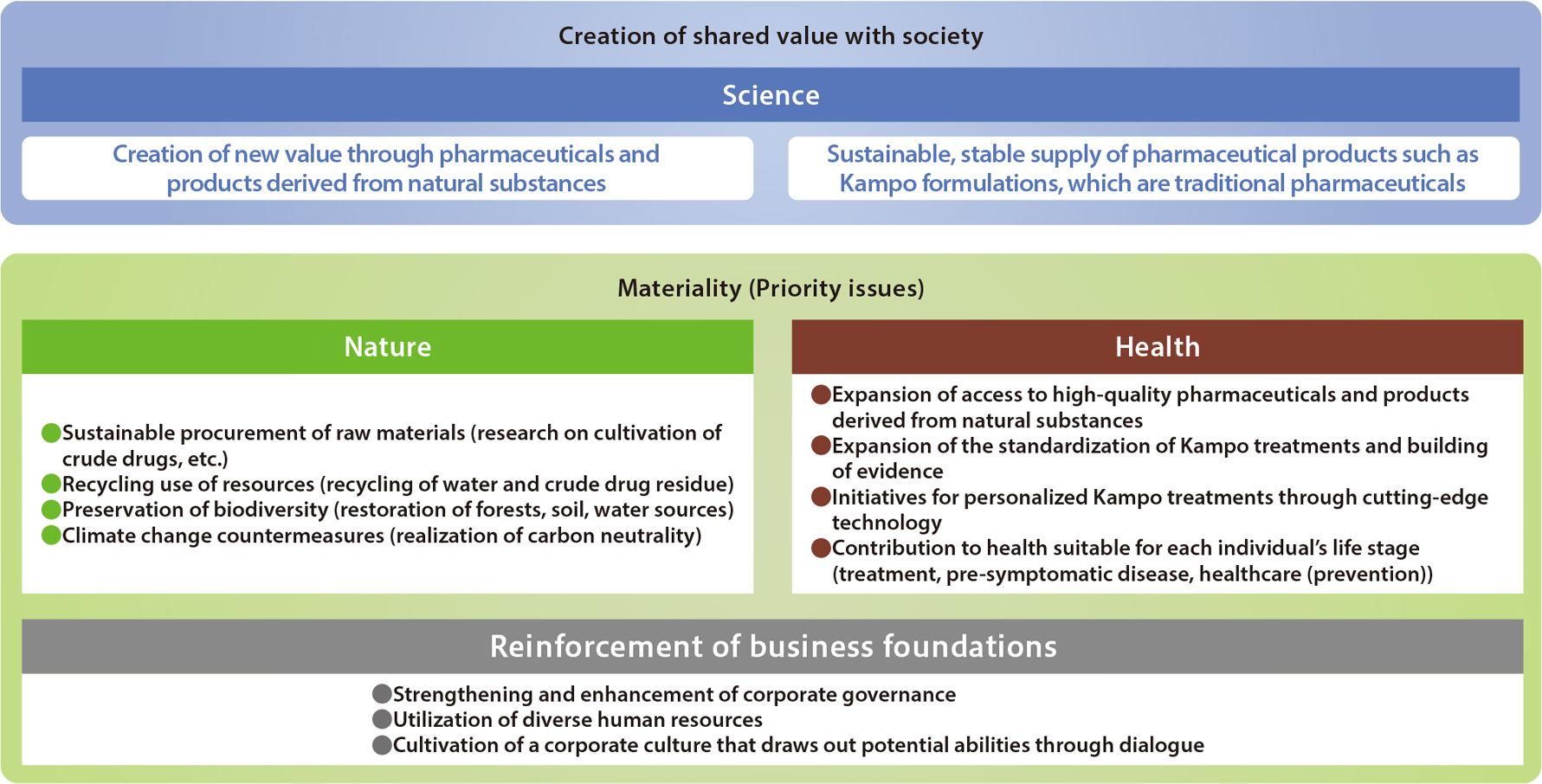Materiality(Priority issues)
Approach to Increasing Corporate Value
To create social value through the Tsumura Group’s products and services, we place organization capital* at the center of management, based on our philosophy. We harness this organization capital to increase centripetal force, aiming to realize our Sustainability Vision and Long-Term Management Vision as the autonomous activities of our employees accumulate to form a great centrifugal force.
Furthermore, we nurture human resources who can reflect our Visions and Corporate Philosophy in their daily activities and make appropriate decisions, creating a cooperative and collaborative organization in an effort to generate a virtuous cycle for all of the capitals. Our approach to this is to engage in activities that promote understanding of our philosophy, such as having dialogues focused on the purpose of work and creation of value.
Through these activities, we maintain an organizational culture that encourages the expression of employees’ latent potential, while aiming to be a pioneering corporate group opening up new pathways in a Kampo and traditional Chinese medicine business that is unique in the world.
- The International Integrated Reporting Council’s “International Integrated Reporting Framework” presents six capitals as a concept for examining an organization’s approach to inherent value creation. To these, the Tsumura Group has added “organization capital” as a seventh capital. This capital is our own original concept. Just as Kampo medicines are composed of a combination of several crude drugs, we aim to create an organization that brings together many people with unique capabilities and individuality in a well-balanced state to create ourideal social value.


Process for Value Creation
The value creation process is a mechanism for contributing to the realization of a sustainable society and continuously enhancing he corporate value of the Tsumura Group. Through business growth that contributes to the good of society, we aim to expand the cycle of value creation.

Fiscal 2022 results
- Organization capital
- Organization mechanism analogous to Kampo medicines
- 130 th anniversary of founding
- Corporate philosophy survey: 4.06 pt
- Human capital
- Number of employees (consolidated): 4,032
- Education expense per person (parent): ¥ 126 thousand
- Percentage of employees with disabilities: 2.58 %
- Intellectual capital
- R&D expenses: ¥ 7,594 million
- Raw Materials for Crude Drug Traceability System based on Tsumura GACP
- Tsumura Quality Management System to ensure the uniform quality of Kampo formulations
- Tsumura’s proprietary research package (KAMPOmics®)
- Natural capital
- Energy used: 2,063 TJ
- Water used: 2,064,946 t Water recycling rate (Ibaraki, Shizuoka and Shanghai): 56.0 % on average
- Percentage of industrial waste recycled: 99.9 % (Parent)
- Countries supplying raw material crude drugs: China approx. 90 % ; Japan, Laos and others approx. 10 %
- Percentage of cultivated land under the Group’s own management: 78 %
- Manufacturing capital
- Selection and processing, quality management: 2 sites in Japan, 2 sites in China
- Manufacturing plants: 2 sites in Japan, 2 sites in China
- Research centers: 1 site in Japan, 1 site in China
- Capital expenditure: ¥ 11,172 million
- Social and relationship capital
- Percentage of physicians prescribing 10 or more Kampo prescriptions: 32 % (approx.100,000 physicians)
- Kampo medicine education being implemented at all university medical departments and medical colleges
- Number of consultations at customer consultation desk: 41,534
- Financial capital
- Net sales: ¥ 140,043 million
- Operating profit: ¥ 20,916 million
- Free cash flow: ¥ 959 million
- Total assets: ¥ 396,813 million
- Shareholders’ equity: ¥ 252,046 million
The Tsumura Group's CSV
The Tsumura Group is engaged in business reforms that will expand the value of pharmaceuticals and products derived from natural substances, aiming to create a diverse society and realize a future where each individual can reach their potential. Our efforts are guided by our founding spirit, a focus on the future, and our Corporate Purpose, “Lively Living for Everyone,” which shapes the Business Commitment that we aim to ultimately accomplish. The Group has grown through the scientific study of Nature’s wisdom, and we therefore consider efforts on creating shared value (CSV) based on a sustainable society and natural environment as the key to enhancing our competitive advantages and contributing to increased corporate value.
The Tsumura Group’s New Materiality
In September 2023, the Group redefined its priority issues (materiality) based on its Corporate Purpose, in order to contribute to solving global issues through its business activities and realize an increase in its corporate value. This review involved changing from the previous bottomup formulation process to a top-down process based on the commitment of the CEO. The objective in doing so is to communicate our social and economic value creation story in a clear way both inside and outside the Company. Looking ahead, we will promote dialogue and co-creation with our stakeholders by promoting information disclosure based on materiality.
The Tsumura Group’s materiality (priority issues) refers to its initiatives for business to embody its Corporate Purpose, “Lively Living for Everyone,” and its Corporate Value, “The Best of Nature and Science.” All values related to nature and health that are created by the Tsumura Group’s business lead to the creation of shared value with society.

Process for Formulation of New Materiality
-
(1) Organize the connection between the Tsumura Group’s three levers in CSV* and its Long-Term Management Vision based on its Corporate Purpose.
-
(2) From the Corporate Purpose and Corporate Value, organize the “Creation of Shared Value with Society” that the Tsumura Group should aim for.
-
Identify the elements organized in (1) and (2) as materiality (priority issues) along the direction and timeline of the Sustainability Vision.
- Three methods (levers) for realizing CSV (Creating Shared Value) advocated by management scholar Michael Porter. ((1) Creation of next-generation products and services, (2) Improvement of productivity across the entire value chain, and (3) Building local ecosystems)

